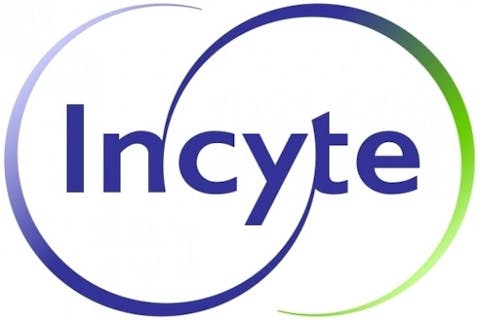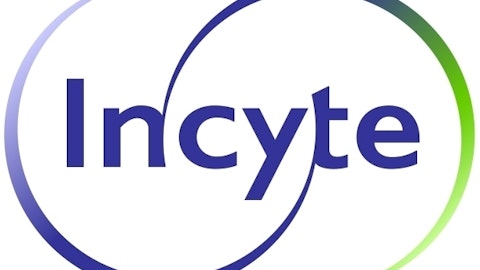One of the hottest stocks on the market Wednesday was Incyte Corporation (NASDAQ:INCY), a pharmaceutical company specializing in the development of JAK inhibitors. It erupted by as much as 32% in mid-day trading after releasing promising data from a phase 2a proof-of-concept trial evaluating one of its JAK inhibitors, Jakafi (ruxolitinib), in pancreatic cancer. As fellow health-care Fool Keith Speights explained, it could be a huge deal for the pancreatic cancer market. Still, investors may be wondering if Incyte really deserves its new valuation. Let’s evaluate the pipeline and see what we find.

Run home JAK
What the heck is a JAK inhibitor, anyway? Drugs in the class are small molecules that interrupt the JAK pathway in cells, which is responsible for sending and receiving messages from the body’s immune system. The biochemical importance of the pathway makes it a great candidate for treating oncology and inflammatory diseases — exactly what Incyte has set out to do.

The pipeline above is current as of August 8, 2013. Source: Incyte website
Incyte Corporation (NASDAQ:INCY) has largely split its burgeoning pipeline between two pharmaceutical giants: Novartis AG (ADR) (NYSE:NVS) for oncology, and Jakafi and Eli Lilly & Co. (NYSE:LLY) for inflammation. Both partners provide funding, cost-sharing, and legitimacy to management’s vision for its pipeline. All one needs to do is consider what would happen if the company’s three JAK inhibitors — Jakafi, baricitinib, and INCB39110 — are successful.
Already approved for myelofibrosis, Jakafi netted Novartis AG (ADR) (NYSE:NVS) and Incyte $136 million in 2012, and $102 million in the first six months of 2013. One day cracking the pancreatic cancer market would open up a $1.2 billion opportunity with relatively few competitors. The pair is also evaluating Jakafi in polycythemia vera and hematologic tumors, which could add another several hundred million dollars to the product’s revenue potential.
The biggest opportunity may lie in treating inflammatory diseases. Incyte Corporation (NASDAQ:INCY) and Eli Lilly & Co. (NYSE:LLY) don’t have a marketable product yet, but effectively treating rheumatoid arthritis — the most advanced indication being evaluated — could be worth billions. Consider that the Big Three TNF-alpha biologics — Remicade, Enbrel, and Humira — approved for such indications brought in a combined $19.6 billion in sales in 2012. Each is approved for multiple indications, but each also had to work its way up from the bottom. Translation: Eli Lilly and Incyte could be sitting on billions of dollars in potential future revenue.
Pfizer Inc. (NYSE:PFE) was the first — and only — company to bring a JAK inhibitor to the rheumatoid arthritis market. Xeljanz has gotten off to a slower start than anticipated, but analysts such as Catherine Arnold at Credit-Suisse are still pegging peak annual sales to $2.6 billion. Others are confident it can help shake-up a market dominated by expensive (but effective) biologic treatments. The nearly $3 billion in potential is not bad for a single indication, and potentially good news for Incyte Corporation (NASDAQ:INCY) investors.


